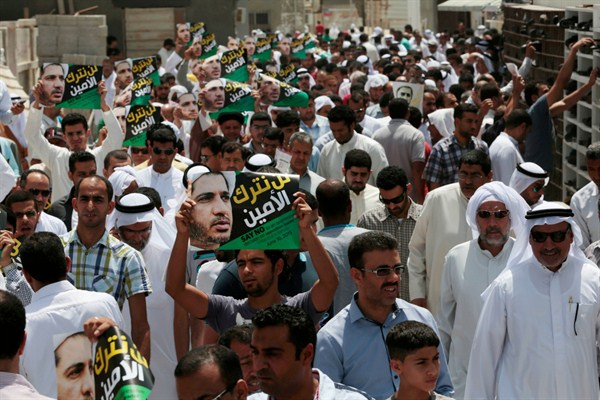Bahraini soccer player Hakeem al-Araibi was released from jail this week in Thailand, after the authorities in Bahrain dropped an extradition request related to his participation in anti-government protests in 2011. He is now back in Australia, where he has refugee status. Dissidents and government critics inside Bahrain have not been as fortunate, as the country’s highest court recently upheld life sentences against three opposition leaders on charges of spying for Qatar. In an interview with WPR, Neil Quilliam, a senior research fellow with the Middle East and North Africa program at Chatham House, discusses Bahrain’s crackdown on dissent and authoritarian retrenchment since the Arab Spring.
World Politics Review: Some recent high-profile cases suggest that Bahrain is more emboldened than ever to go after opposition leaders and dissidents, both at home and abroad. Why is that?
Neil Quilliam: The Bahraini government feels emboldened mainly because of three factors, each of equal importance. First, U.S. President Donald Trump has seemingly abandoned any pretense that democracy promotion and human rights are important to American foreign policy. His emphasis on securing strong trade relations with Gulf partners and shoring up jobs for American workers means that high-profile human rights cases are no longer in the spotlight.

